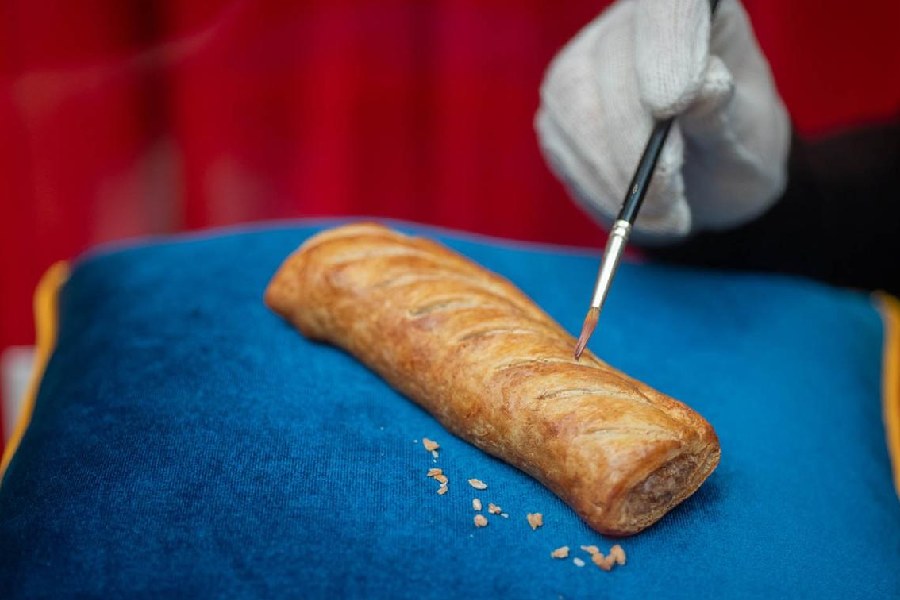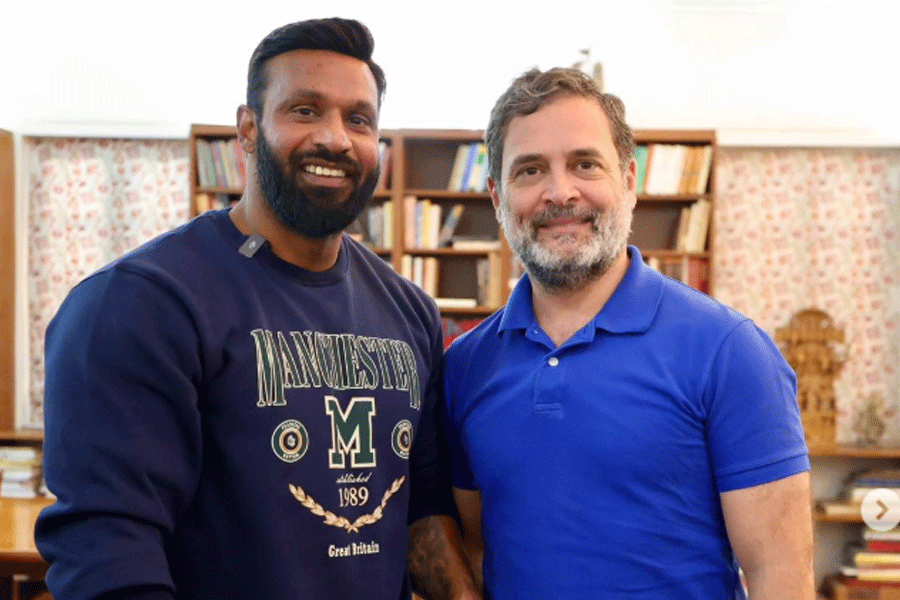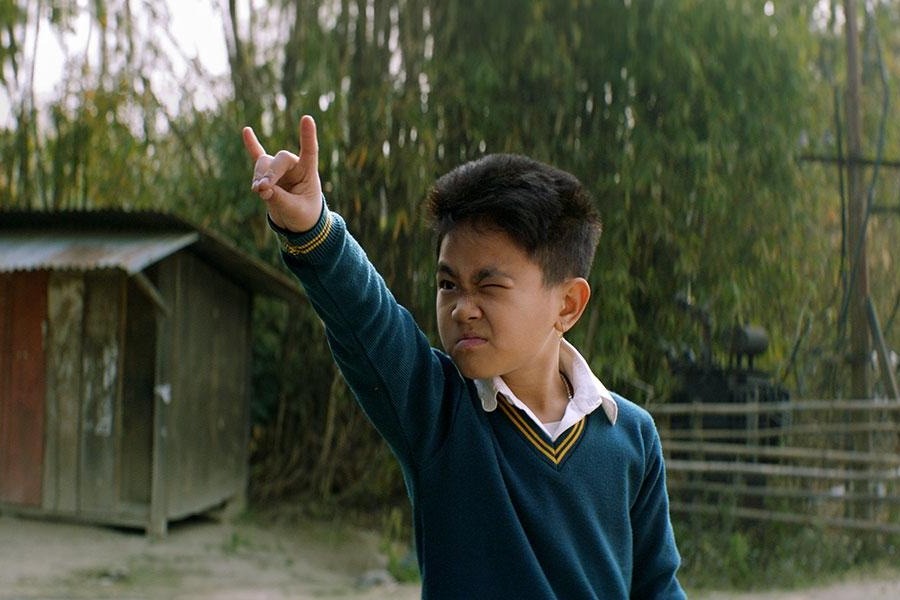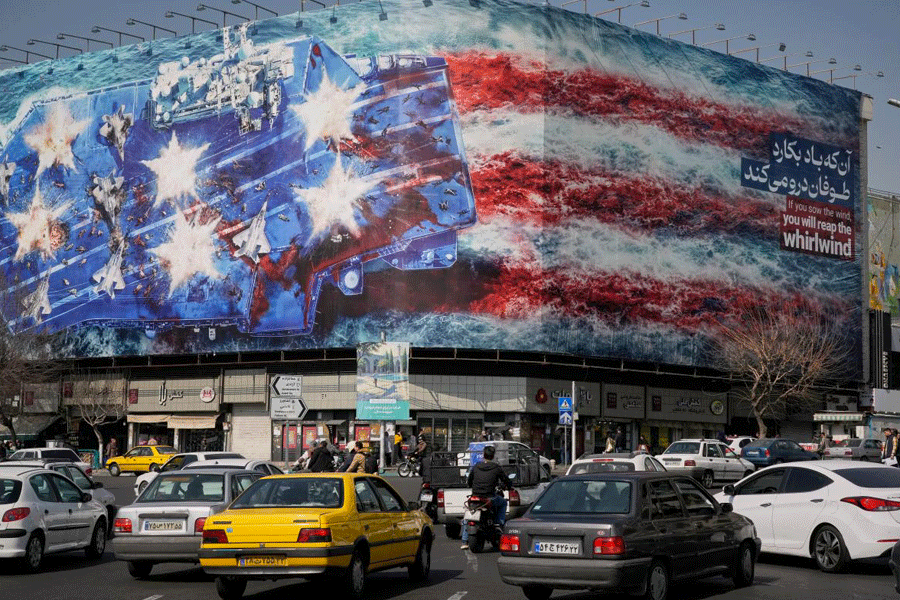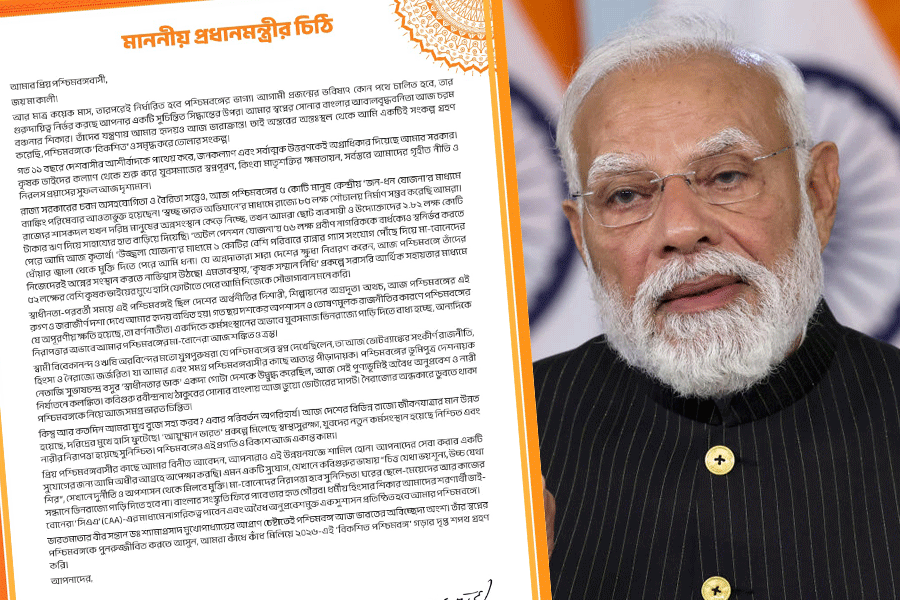Flaky tribute
Sir — Madame Tussauds’s decision to immortalise the Greggs Sausage Roll alongside national icons such as Sir David Attenborough and William Shakespeare is both bewildering and telling. While intended as a light-hearted celebration, this move risks trivialising the very notion of cultural contribution. A snack, however beloved, hardly stands on a par with figures who have profoundly shaped Britain’s intellectual and artistic heritage. One hopes this signals not a decline in standards but merely a fleeting novelty. British culture, rich and layered, deserves more discerning curatorship than wax tributes to a popular pastry. If this were the case, then statues of Rabindranath Tagore and Subhas Chandra Bose would rub shoulders with wax figurines of rosogollas.
Soumendra Choudhury,
Calcutta
Chained speech
Sir — The arrest of Sharmistha Panoli must be seen not in isolation but as part of a political choreography across states. Whether in Bharatiya Janata Party-led Assam or Trinamool Congress-led Bengal, speech is policed when it suits those in power. The police force, which fails to maintain law and order in its own state, reaches other states to arrest people. The principles of free speech seem increasingly hostage to political interests. This dangerous precedent undermines faith in both impartial law enforcement and democracy itself.
Souvik Maji,
South 24 Parganas
Sir — The arrest of Sharmistha Panoli by Kolkata Police under sections meant for serious offences illustrates a worrying trend of misapplying the law to stifle speech. The judiciary has repeatedly held that offensive opinions must cross a high threshold to qualify as criminal. Until then, speech remains protected. The fact that a law student with attention deficit and hyperactivity disorder has been denied bail by the Calcutta High Court despite not being a proven threat to public order reflects poorly on both prosecutorial discretion and the safeguarding of constitutional freedoms (“Bar Council calls for influencer’s release”, June 3).
A.K. Sen,
Calcutta
Sir — The Calcutta High Court’s refusal to grant interim bail to Sharmistha Panoli reinforces fears that India’s democracy is growing intolerant of dissent. While freedom
of speech is not absolute, the ease with which students, comedians, and content creators face criminal proceedings for mere expression is alarming. Outrage must not override legality. If every unpopular view becomes a matter for the police, then public discourse is in peril.
Atul Krishna Srivastava,
Navi Mumbai
Sir — While freedom of expression is vital, it does not entitle individuals to abuse that liberty to incite division. India’s diversity demands restraint and cultural sensitivity, especially on public platforms. Sharmistha Panoli’s video hurt religious sentiments. Rights come with responsibilities. Dismissing public outrage as hypersensitivity misses the point that society must protect communal harmony just as firmly as it defends personal freedoms.
Asim Boral,
Calcutta
Sir — The denial of bail to a 22-year-old student with ADHD, despite acknowledged risks to her well-being, raises troubling concerns. Even though it was offensive, her video was taken down and did not incite violence. Pre-trial incarceration must not be used punitively. Jails are ill-equipped to support those with mental health needs. The judge’s remark that the “heavens will not fall” if she stays in custody appears to trivialise both her medical condition and the broader issue of custodial compassion.
Annesha Ghosh,
Calcutta
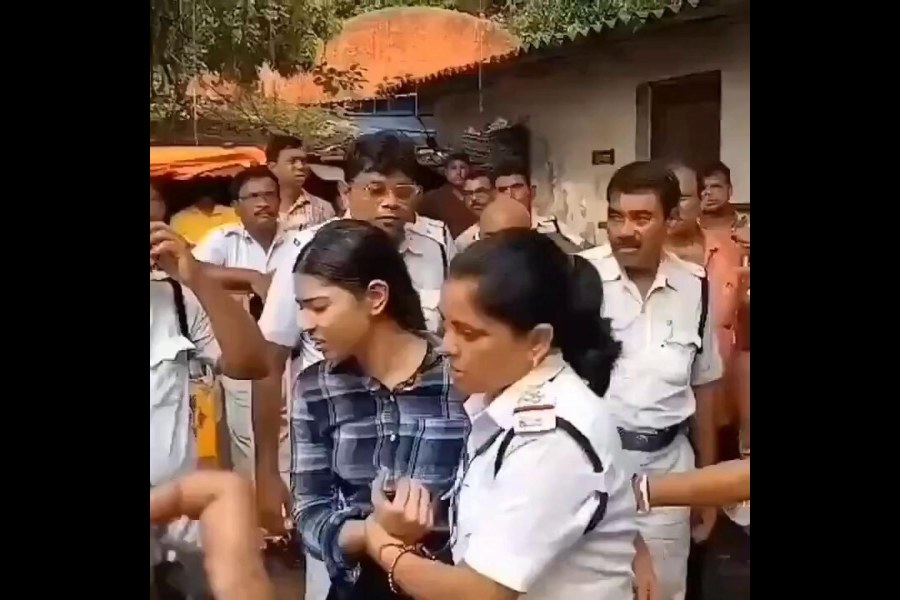
Sir — India’s laws increasingly resemble a toolkit to enable selective outrage. One week, it is a comedian, the next a student; citizens from all walks of life are silenced for ‘hurting public sentiments’. All the while, political leaders cutting across party lines get away with spouting the most vile and ridiculous things. Kolkata Police would do better to police actual crime than the opinions of social media influencers. Surely, if the system can be shaken up by an Instagram video, it is a system that has no business being run in the first place.
Jahar Saha,
Calcutta
Poignant memoirs
Sir — Despite the initial jolt, it was profoundly enlightening to know about the record numbers in which Indians had participated in World War I and the experiences of two Bengali participants in that war (“Sensory terror”, May 29). These masterpieces must be translated into various languages for the world to know that White Europeans were not the only ones whose sacrifices in World War I must be venerated.
Srinjaya Bhattacharya,
Calcutta
Sir — The two books, Kalyan-Pradeep: Captain Kalyan Kumar Mukhopadhyay, I.M.S.-er Jiboni by Mokkhoda Debi and Abhi Le Baghdad by Sisir Sarbadhikari, reveal the truth about war. Mokkhoda Debi’s act of gathering her grandson’s letters was not only a labour of love but also an act of resistance to keep alive the memory of a Bengali doctor who served and died far from home. Sarbadhikari’s diary, written in captivity, stands as a brave effort to document not just battle but the inner world of the soldier.
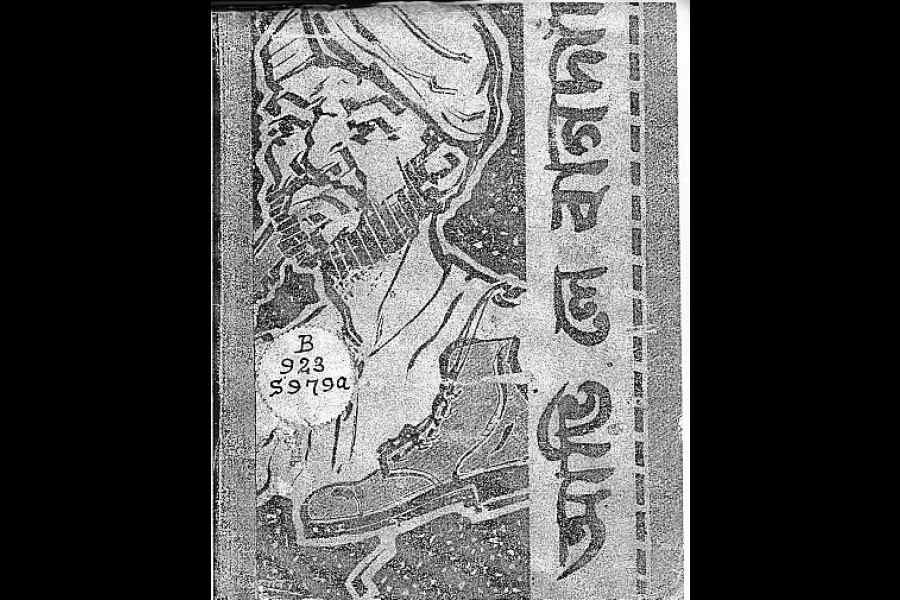
At a time when war is depicted with flashy graphics and loud music on television, we forget what it actually means. Amitav Ghosh and Uddalak Mukherjee must be thanked for bringing these long-lost books to light. I hope publishers and readers in Bengal and beyond will give these books the second life they deserve.
Shatadru Ghosh,
Calcutta
Parting shot
Sir — The promise of a bumper monsoon this year is fizzling out already.
Romana Ahmed,
Calcutta

